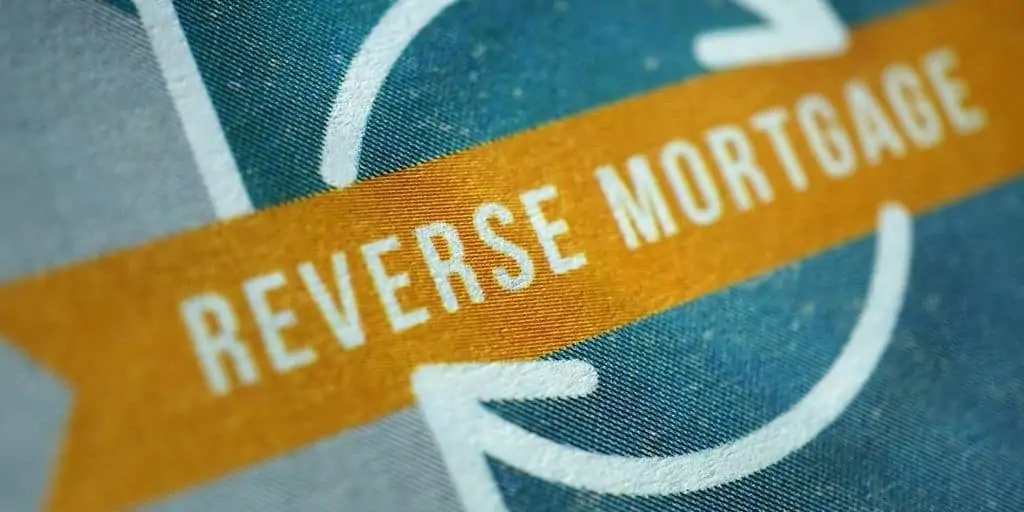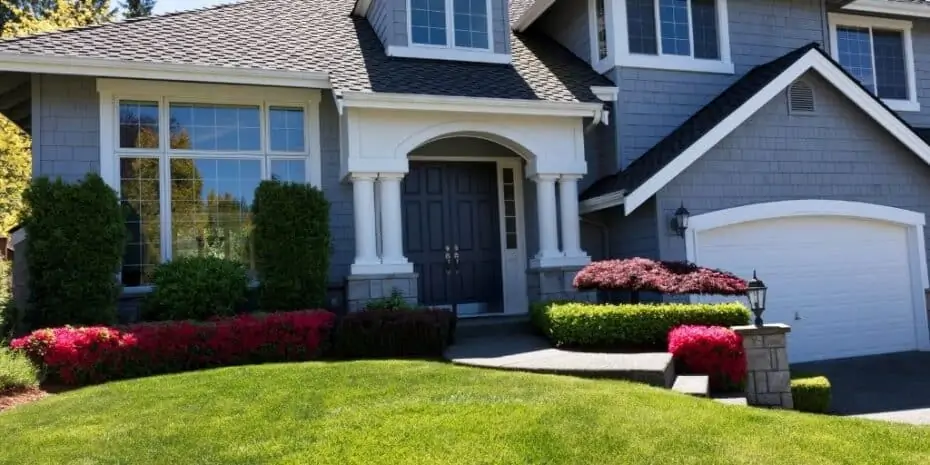What Is a Reverse Mortgage?
REtipster does not provide tax, investment, or financial advice. Always seek the help of a licensed financial professional before taking action.
How Does a Reverse Mortgage Work?
A reverse mortgage is a loan against the equity in a homeowner’s primary residence where the borrower retains the title to the home. It is not typically not required to repay the loan as long as they live in the property. Proceeds from a reverse mortgage are generally not taxable.

Borrowers must be age 62 or over[1] to qualify for most reverse mortgages, although private lenders may make proprietary loans to borrowers age 60 and over (see the section below).
Federal regulations require lenders to structure reverse mortgages so that the loan amount will not exceed the home’s value. Most reverse mortgages are non-recourse loans, which means that the homeowner’s heirs and/or estate cannot be held responsible if the home value drops and no longer covers the reverse mortgage balance[2]. For this reason, most reverse mortgage lenders require mortgage insurance to protect their interests.
There are three types of reverse mortgage programs:
- Single-purpose reverse mortgage. These loans are offered by certain government agencies and nonprofits; they may not be available in all locations. This type of reverse mortgage is made to accomplish a specific purpose, such as home repairs or payment of delinquent property taxes. The lender determines how the funds may be used. A single-purpose reverse mortgage is usually only available to low- and moderate-income borrowers.
- Home equity conversion mortgage (HECM). This reverse mortgage is federally insured and backed by the Department of Housing and Urban Development (HUD). Proceeds can be used for any purpose and there are several different payout options. With a HECM reverse mortgage, the borrower must meet with a housing counselor from a government-approved agency before the loan can close. There is no income requirement for HECM reverse mortgages, but they are subject to FHA loan limits.
- Proprietary reverse mortgage. Private lenders sometimes offer proprietary reverse mortgages, which are not subject to many of the rules and guidelines required for government-backed reverse mortgages. A private lender can make jumbo reverse mortgages for as much as $5 million, well above the FHA loan limits. In addition, there are no limitations on the lump-sum payout options as there are with HECMs. Proprietary reverse mortgage lenders can also make loans on property types typically not eligible for FHA-backed reverse mortgages.
Payout Options for a Reverse Mortgage
The vast majority of reverse mortgages are federally insured HECMs, available for homes valued at or below the current FHA limits. HECM reverse mortgages offer the following payout options:
- Lump-sum reverse mortgage payout. This payout option is the only reverse mortgage available as a fixed-rate loan. Homeowners can request a lump-sum payout, but there are limitations. Only 60% of the principal balance is available to borrowers at closing; the other 40% becomes available in the form of a line of credit one year after closing.
- Annuity or tenure plan. The lender makes regular monthly payments to the borrower as long as they live in the home. This type of reverse mortgage payout is only available as an adjustable-rate loan.
- Term payout. The borrower picks a term, such as 10 years, and the lender makes regular reverse mortgage payments for the length of the term. Again, this type of payout is only available as an adjustable-rate reverse mortgage.
- Reverse mortgage line of credit. This loan functions like a home equity line of credit (HELOC). The borrower can withdraw cash as needed up to the loan limit.
- Monthly payments or term payments plus a line of credit. This type of payout combines a regular monthly payment with access to a line of credit when the homeowner needs it.
Reverse Mortgage Fees
The following fees apply to HECM reverse mortgages; borrowers who obtain proprietary or single-purpose reverse mortgage may have slightly different costs.
- Counseling costs. Federally insured reverse mortgages require that borrowers receive counseling from a HUD-approved counselor. Counseling fees may be waived for borrowers below a certain income threshold.
- Mortgage insurance premium (MIP). Currently, the upfront MIP is 2% of the loan amount plus an annual premium of 0.5%[3].
- Origination fees. These are currently 2% of the first $200,000 and 1% of loan amounts above $200,000. HUD caps loan origination fees at $6,000.
- Loan servicing fees. Lenders can charge a monthly servicing fee, but the amount is capped by HUD and depends on whether the loan is a fixed-rate or adjustable-rate mortgage.
- Closing costs. Lenders may charge standard closing costs such as appraisal fees, recording fees, title insurance, escrow charges, inspections, and document preparation fees.
Unless the borrower elects a lump-sum payout, most reverse mortgages are adjustable-rate loans. This means the interest rate will be the London Interbank Offered Rate (LIBOR) plus a margin of between 1% and 3% for existing loans closed before May 2021; the FHA has recently dropped LIBOR for SOFR (Secured Overnight Financing Rate) for HECMs[4]. In both cases, though, interest is added to the loan balance each month, which means the loan balance increases over time.
Qualifying for a Reverse Mortgage
Not every homeowner is eligible for a reverse mortgage. The following guidelines apply to HECM reverse mortgages, which represent the majority of all such loans.
- The homeowner must be 62 years or older, although some proprietary lenders approve reverse mortgages to borrowers 60 years of age. If there are co-borrowers, at least one must be 62 or over for HECM loans.
- The property securing the reverse mortgage must be the borrower’s primary residence. Vacation homes and investment properties do not qualify for a reverse mortgage.
- The borrower must either own the home outright or have a single mortgage on the property that can be paid in full with the proceeds from the reverse mortgage.
- Borrowers must be current on all federal obligations such as student loan debt and federal income tax.
- The home must be in good shape. Some lenders may require the borrower to set aside funds from the reverse mortgage to cover maintenance and repair costs as well as property taxes and insurance.
Because borrowers are not required to make monthly payments on a reverse mortgage, financial metrics such as credit score and debt-to-income ratio typically are not considered for reverse mortgage eligibility[5]. Loan limits are based solely on the age of the youngest borrower on the note, the appraised value of the home, and current interest rates.
Note that even though a reverse mortgage is typically a non-recourse loan, it is still secured by the borrower’s primary residence. This means that the lender can foreclose on the property if the loan conditions are not met.
Although borrowers cannot default on a reverse mortgage for failing to make monthly payments, they can fall into default if they do not make property tax, insurance, or HOA dues payments on time, keep the home in good repair, or occupy the home as a primary residence. If the lender forecloses on a reverse mortgage, the borrower’s estate is not liable for any difference between the property’s sale price and the loan balance.
Takeaways
Reverse mortgages are available to qualifying seniors age 62 or over. They are a way to tap the equity in the borrower’s primary residence. The loan can be paid in a lump sum or in monthly installments over a certain period and the loan does not need to be repaid until the borrower dies or sells the property.
Credit score and income are not generally factored into approval for a reverse mortgage. The loan must fall within FHA loan limits, however. The vast majority of reverse mortgages are home equity conversion mortgages or HECMs, which are backed and insured by the federal government.
Sources
- American Advisors Group. (n.d.) Understanding Reverse Mortgage Loan Qualifications and Requirements. Retrieved from https://www.aag.com/reverse-mortgage/qualifications/
- Chee, D. (n.d.) What is a reverse non-recourse loan? Retrieved from https://www.davidchee.com/faq/non-recourse-loan/
- National Reverse Mortgage Lenders Association. (n.d.) 4. Application/Fees/Disclosures. Retrieved from https://www.reversemortgage.org/your-roadmap/4-application-fees-disclosures/
- Clow, C. (2021.) [Updated] FHA Officially Drops LIBOR for Adjustable-Rate Reverse Mortgages, Adopts SOFR. Reverse Mortgage Daily. Retrieved from https://reversemortgagedaily.com/2021/03/11/fha-officially-drops-libor-for-adjustable-rate-reverse-mortgages-adopts-sofr/
- Luthi, B. (2019.) Is a Reverse Mortgage Right for You? Experian. Retrieved from https://www.experian.com/blogs/ask-experian/how-does-a-reverse-mortgage-work/









